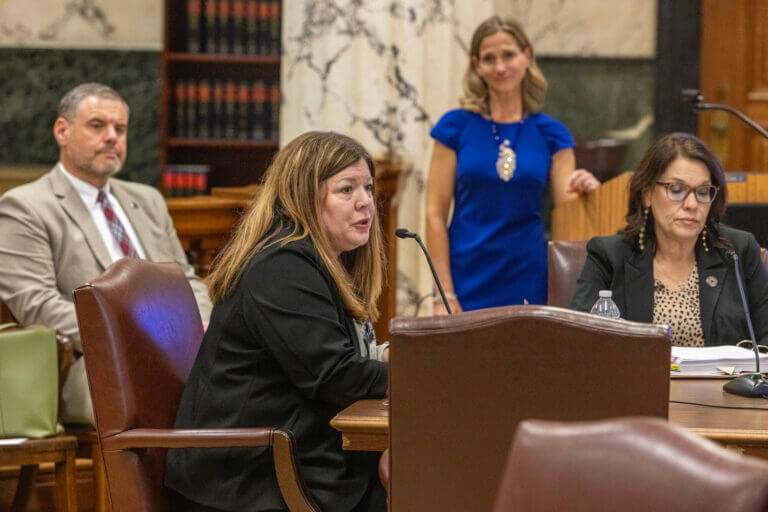
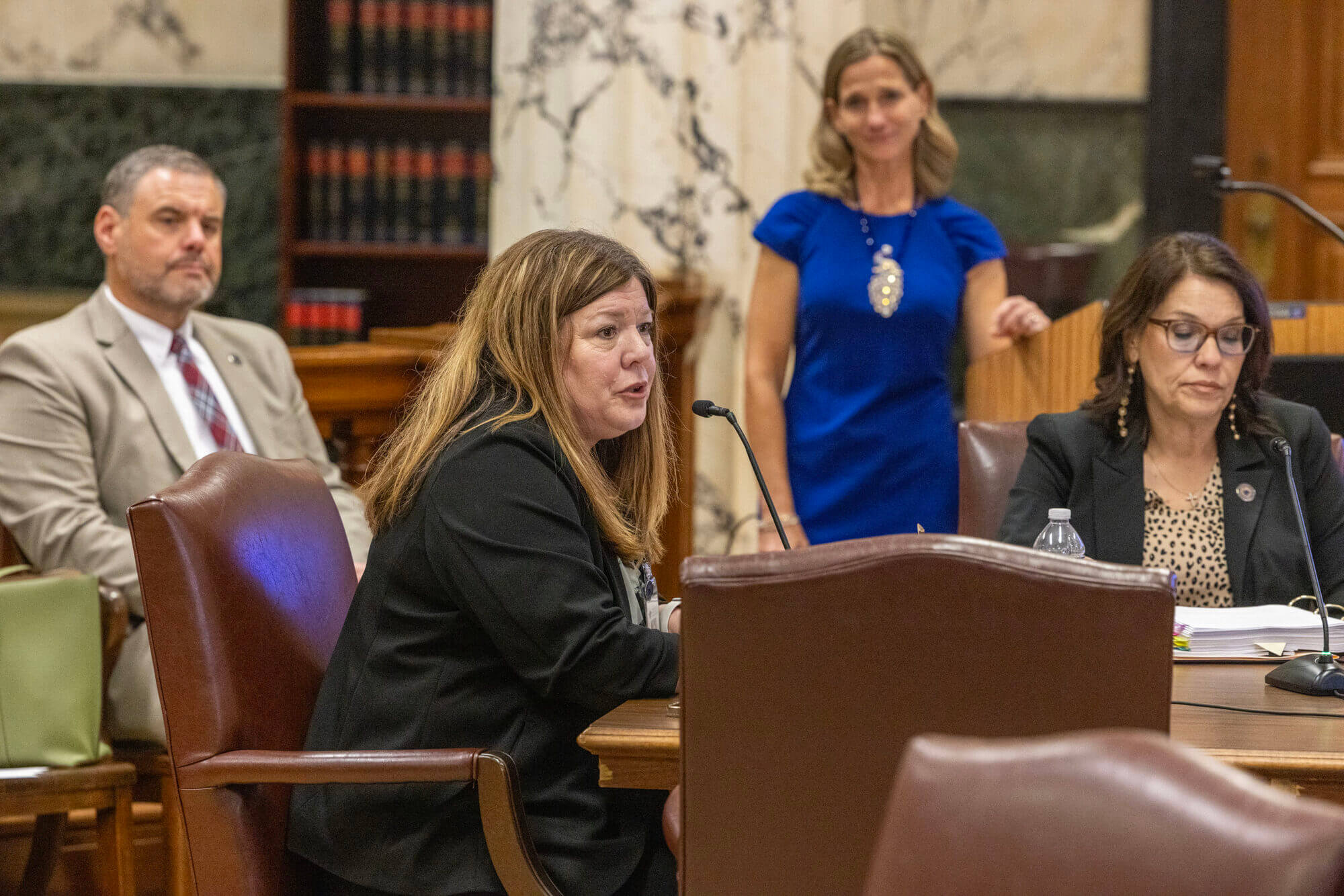
As state House leaders press for overhauling the state’s education system through privatization, the Senate Education Committee over Thursday and Friday heard a decade-long list of Mississippi public schools’ academic achievements.
State Superintendent Lance Evans and his executive team made a case at the hearings for their $3.38 billion appropriation request from the Legislature this coming year, while senators subtly signaled their support for the state’s public education system. It could foreshadow a fight between the House and Senate in the 2026 legislative session, as the House leadership makes a full-court press for expanding “school choice” and using public money for private education options.
Over the course of two days, Wendy Clemons, the Mississippi Department of Education’s chief academic officer, and Paula Vanderford, chief accountability officer, gave a detailed account of the public education system’s successes over the past 10 years, including increased graduation rates and higher elementary reading and math scores.
A decade ago, Mississippi had some the nation’s lowest fourth-grade reading scores. That changed in 2019 when the state began making headlines for having the most gains in the country in fourth-grade reading.
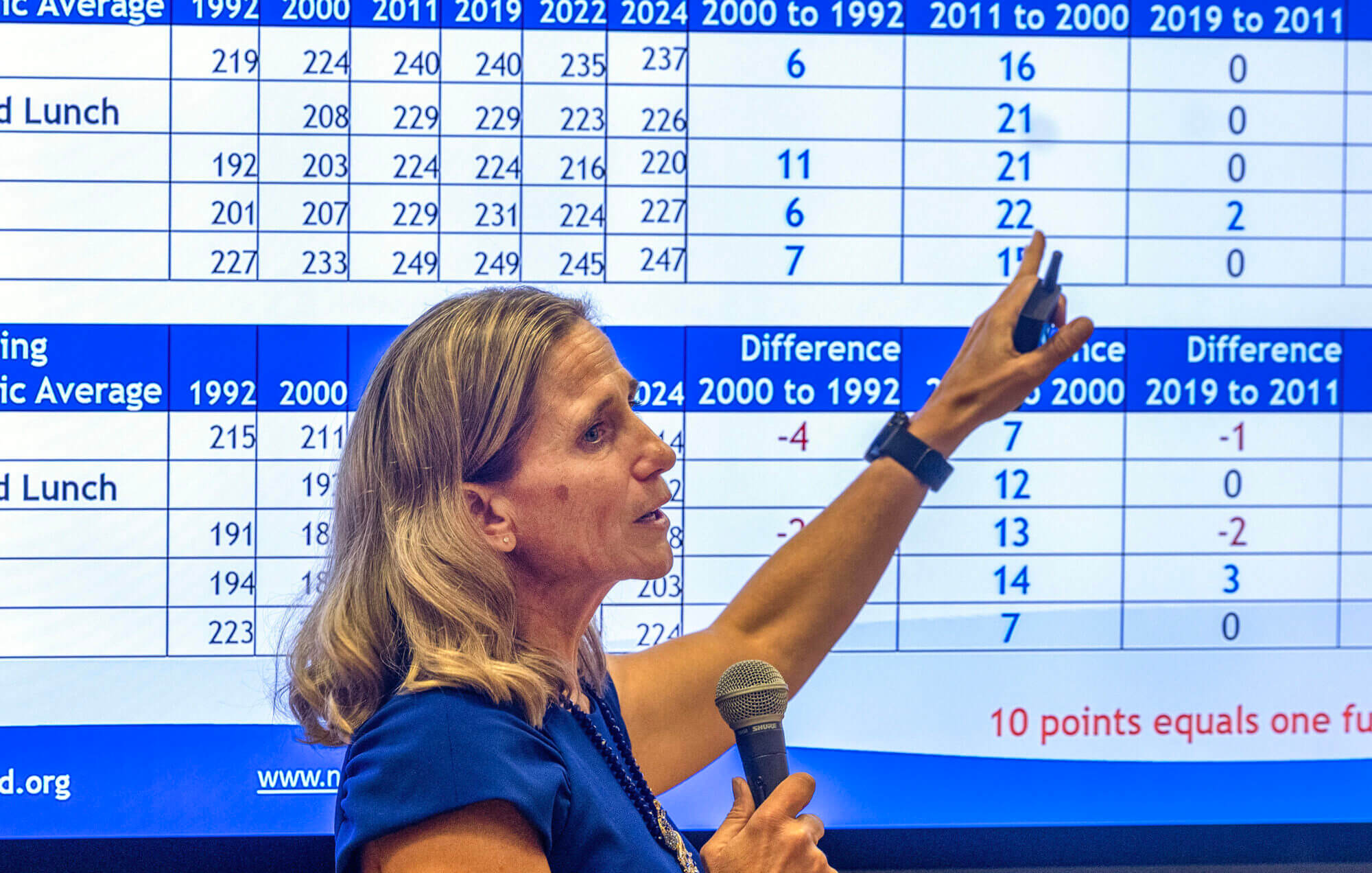
ExcelinEd’s senior policy fellow Christy Hovanetz moderated the first hearing on Thursday, and said the state’s educational progress is a direct result of targeted policy decisions and funding investment, such as the 2013 literacy act that established a third-grade reading test and drastically changed how reading is taught in Mississippi. MDE has also pushed districts to adopt and teach using “high-quality instructional materials.”
“Mississippi is a national story,” she said. “Be proud of your success. You have done amazing things for students and your state.”
But there’s more work to do, officials said.
The agency hopes to build on the work of the literacy act, expanding it into grades 4-8. Data shows that despite “miraculous” growth in reading proficiency among fourth graders, it’s challenging to sustain those gains through eighth grade. Increased math proficiency, too, is a focus for the education department.
And while the state has ramped up teacher recruitment, Mississippi still faces a teacher shortage. That’s largely due to low pay, Vanderford said.
Though legislators gave teachers a pay raise in 2022, health insurance increases almost immediately absorbed the extra money. Nearby states also have increased teacher pay in recent years. Adjusted for cost of living, the agency says Mississippi’s teacher pay — at $54,200 — is ranked 46th out of 49 states, as of May 2024.
That means Mississippi, once again, is near the bottom.
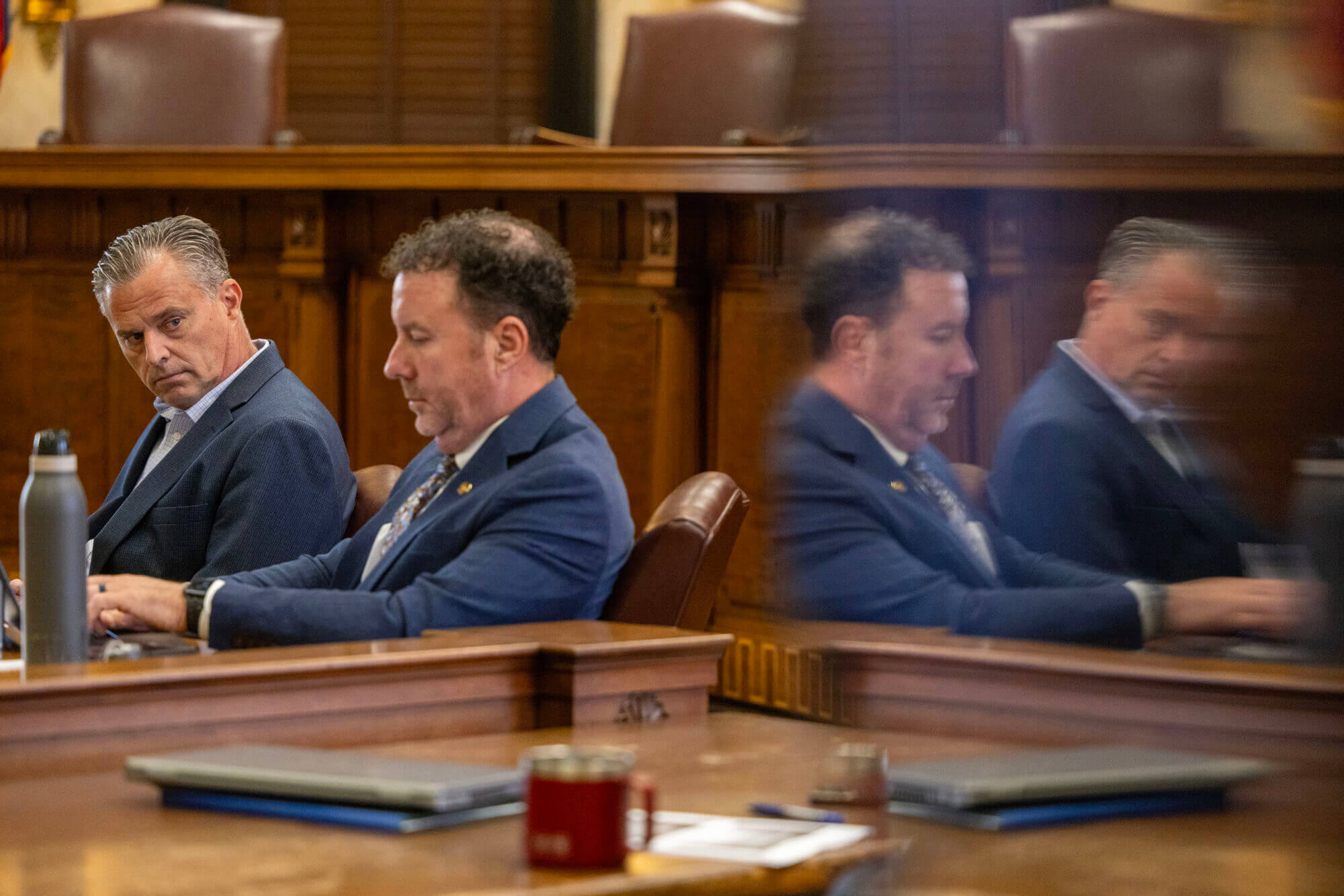
Legislators seemed surprised to hear that the agency’s accountability model, the system by which schools and districts are measured, was recently revamped to include more college and career standards and is already being implemented across the state. As a result, Vanderford said, we’ll likely see fewer A- and B-rated schools this coming year.
That’s not an indication that student learning is getting worse, though. This year, there were some A-rated districts with less than half of students proficient in reading or math. The revisions to the accountability model are in effort to increase those proficiency levels, Vanderford said.
The agency also plans to focus on decreasing chronic absenteeism, which is defined as missing 10% of the school year, or 18 days, in Mississippi. Since the pandemic, those absentee rates have seen a significant uptick, according to MDE data.
Moving forward, the agency will set up consistent systems for documenting absenteeism, emphasize graduation success rather than dropout prevention and build outreach systems to intervene earlier when students start missing school.
Those efforts will likely also implement the work the agency is doing to support low-performing districts, especially the four struggling “districts of transformation” that the state has taken over.
“We have no intention of losing momentum,” Evans said at the end of the hearings. “I personally feel the full weight of everything we’ve talked about. I live it every day, and I impose that on the people at the department.
“We’re not satisfied with where we are. We’re the type of people who will never be satisfied with where we are.”
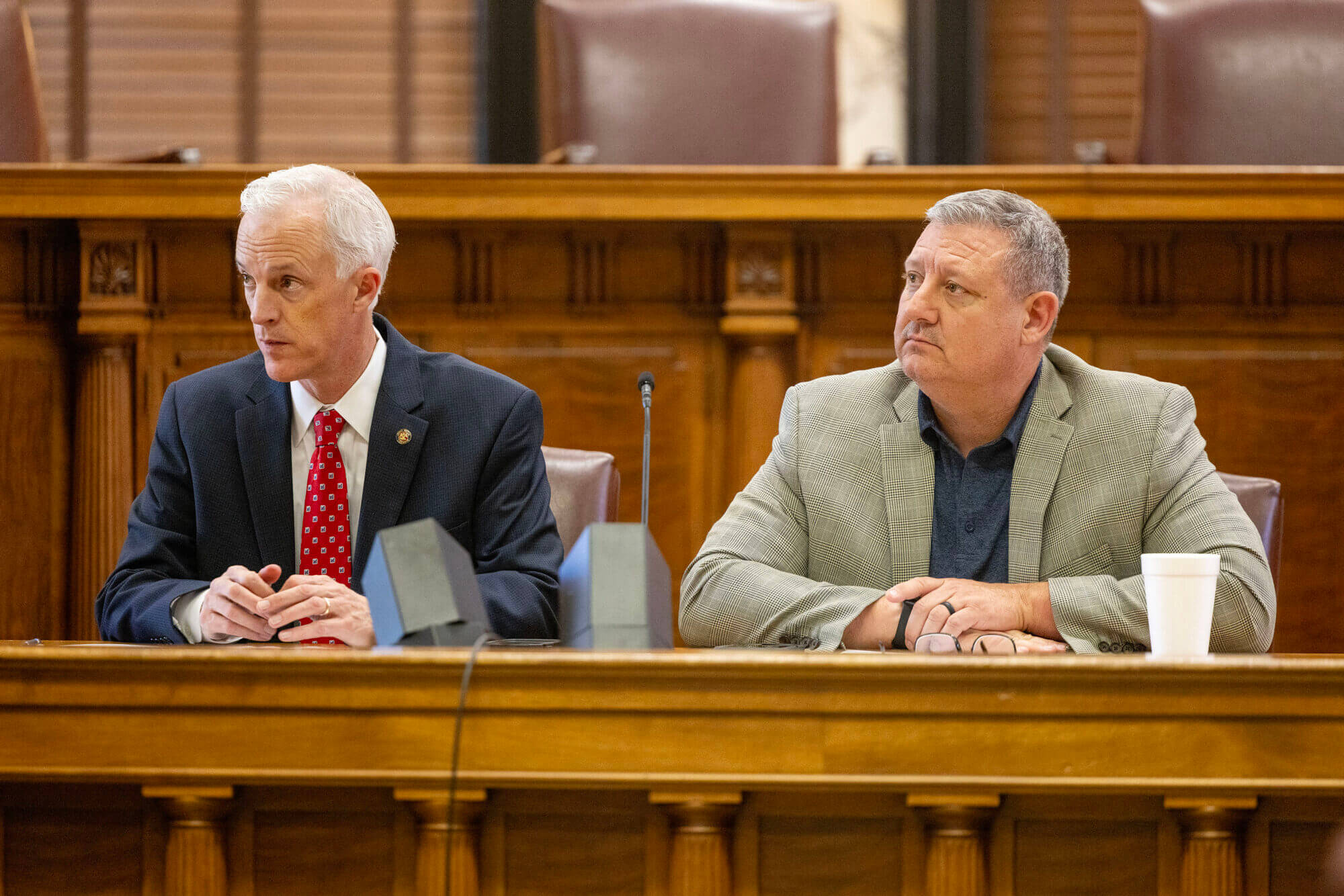
Senators peppered the education leaders with questions through the two days of presentations, pressing officials on early education initiatives and what they were doing to help the state’s lowest- and highest-achieving students.
Chairman Dennis DeBar, a Republican from Leakesville, said the committee would likely meet again on Oct. 28.
“We’re on the right track,” he said in closing remarks. “As we move forward, we are hesitant to make major changes in the way we operate. These minor tweaks are necessary. We’re going to keep pushing you as a department to make these changes. We’re here to work with you and give you the tools you need to support these districts.”
- State fire marshal is investigating troubled Unit 29 at Parchman prison - February 26, 2026
- Mississippi’s Winter Storm Fern losses exceed $107 million, state insurance department says - February 26, 2026
- DNA evidence linked to a Greenville homicide is missing. Now the finger-pointing begins - February 26, 2026